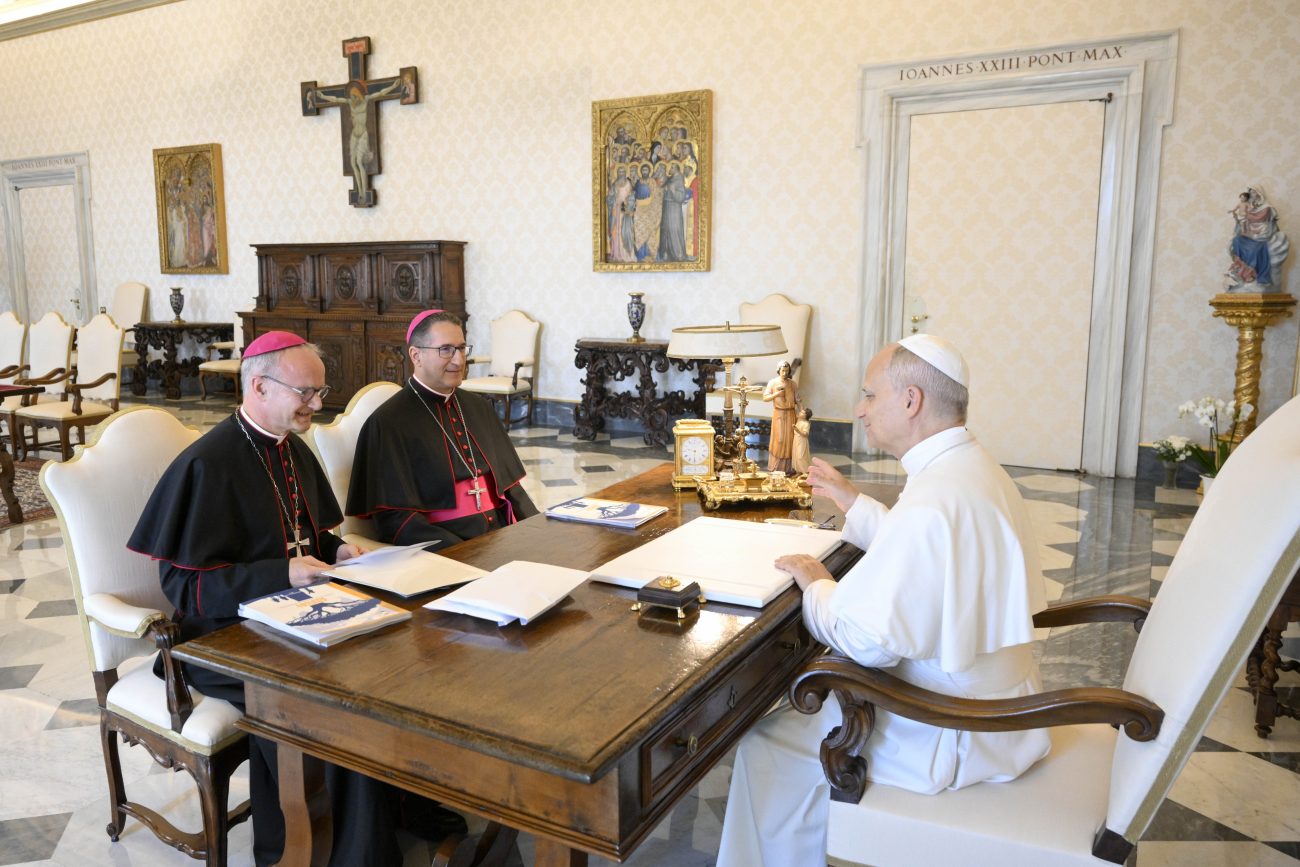VATICAN CITY (CNS) — To improve the church’s safeguarding approaches and measures, the Pontifical Commission for the Protection of Minors said it relied on extensive input and feedback from victims/survivors in its second annual report.
As a consequence, the report featured a chapter listing more than 20 major concerns drawn up by its victim/survivor focus group, which included: an ongoing lack of accountability for church leaders and resistance to safeguarding reforms; the risk of retaliation and rejection for whistleblowers; the continued ministry of known perpetrators; the need to vet all church personnel properly; and the need for a “mature approach” to reparation.
“The primary need from victims/survivors is not financial compensation but rather recognition of harm, genuine apologies, and meaningful action to prevent future abuses,” said the 103-page report, which was released Oct. 16 at the Vatican.
“In many cases, however, victims/survivors report that the Church has responded with empty settlements, performative gestures, and a persistent refusal to engage with victims/survivors in good faith,” it said.
“Figures of authority within the Church who perpetrate or enable abuse have perhaps viewed themselves as too essential and important to be held accountable,” it said.
“The Church believes herself to be central to God’s plan for humanity,” it said, “but God’s promises to the Church are not a ‘too essential to fail’ free pass of impunity: to the contrary, the Church needs to remember that judgment begins within the household of God.”
The papal commission’s Annual Report on Church Policies and Procedures for Safeguarding is meant to serve “as both compass and chronicle in the Church’s global pilgrimage toward accountability,” Archbishop Thibault Verny of Chambéry, France, president of the papal commission, wrote in the document’s introduction.
Using data from multiple sources for the 2024 calendar year, including observations from apostolic nuncios and the U.N. Committee on the Rights of the Child’s reporting mechanism, the report analyzed several church entities, offering an overview of their current safeguarding measures, ongoing challenges and recommendations from the commission members.
Each year, the report focuses on a different set of bishops’ conferences, religious institutes and offices of the Roman Curia, and this year’s report also included a lay association: the Focolare movement.
In addition to providing precise details regarding individual church entities, the report also offers a global analysis of its main findings and observations.
It said there are six areas “that the church must further address in order to fulfil its fundamental obligations to victims/survivors”: safe spaces for listening and care; better communication, such as with public and private apologies; better spiritual and psychotherapeutic support; financial support that is tailored to each victim’s specific needs; meaningful sanctions and institutional reforms; and more safeguarding initiatives throughout the church community.
The commission will further develop the six areas into “more detailed procedures to be offered as guidance to episcopal conferences and religious orders, tailored to their different cultural and social contexts,” the report said.
One major focus of the report was on the need for proper and concrete “reparation” to victims by the entire church community.
“One cannot harm one of Christ’s precious ‘little ones’ without betraying, harming, and, indeed, angering Christ,” it said. Therefore, “in facing the tragedy of abuse, the Church must acknowledge her debt of reparation to God” as well as to victims/survivors and to the larger community.
“We must re-emphasize that the Church’s decades-long pattern of mishandling reports, including abandoning, ignoring, shaming, blaming, and stigmatizing victims/survivors, perpetuates the trauma as an ongoing harm,” it said.
“The first objective of repair is to stop the spiritual and emotional bleeding precipitated by the combination of abuse, enablement of abuse, and mishandling of reports of abuse. This is why both new and old cases matter,” it added.
The report listed multiple harms caused by abuse and the mishandling, silencing and cover-up of cases.
Not only are whole families, innocent priests and religious harmed, it said, a toxic environment marked by fear and distrust of priests, bishops, religious, teachers and other church staff, can undermine a child’s “relationship to the Church and separate them from spiritually nurturing experiences.”
In addition, priests, religious and church personnel can be unwilling to “nurture and mentor children and adolescents, based on fears of being unjustly accused or because of over-restrictive safeguarding protocols,” it said.
Anywhere there is an environment of fear and suspicion, it said, “the necessary boundaries of safeguarding can become barriers and children can be viewed as too dangerous for interactions,” which is “gravely harmful to the development and spiritual formation of children and adolescents.”
The report also called for greater transparency by specifying when the resignation and/or removal of church leaders or personnel was made because of abuse or negligence.
While such communication would need to respect principles related to privacy and the presumption of innocence, those principles cannot be used “at the cost of victims,” Benyam Dawit Mezmur, a commission member, said at a Vatican news conference Oct. 16.
“Reparations definitely — particularly apologies, rehabilitation, even financial compensation — require that level of transparency, of course, without undermining the right to privacy and presumption of innocence,” said the lawyer, who also had served on the U.N. Committee on the Rights of the Child.
The report said it was “not merely an account of the Church’s progress and continued areas for improvement. Rather, it seeks to be a living instrument of shared conversion — a means of communicating the wisdom and knowledge learned through the witness of victims/survivors, and the commitment of countless women and men of goodwill who have sought to respond to the question: what did you do, once you knew?”
By gathering and sharing on-the-ground, lived experiences and perspectives, it said, the report sought to represent a “shared journey” to help the church restore trust and credibility.
PREVIOUS: Jesus Provides Sustenance, Not Ready-Made Answers, Pope Says
NEXT: Pope Boards Sailboat to Speak Peace with Young Adults



Share this story